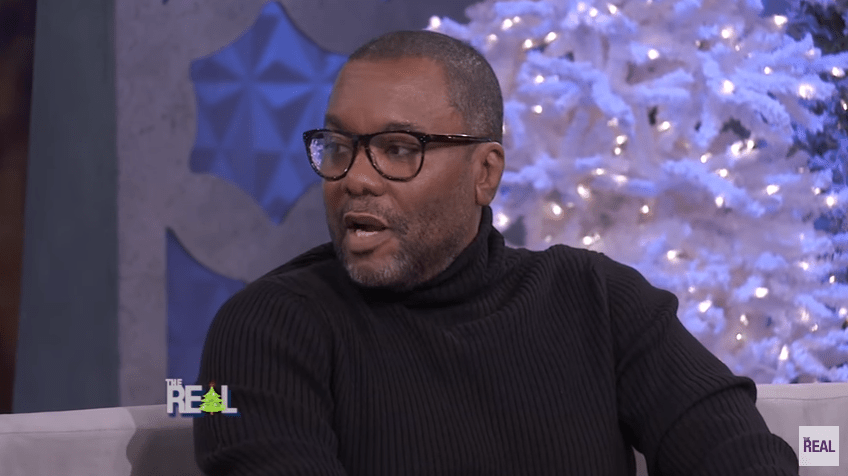No, Lee Daniels, #OscarsSoWhite Isn’t About “Complaining”—It’s About Change
Havo-dad, sir.

2016 might have been the year of incendiary Trump tweets and too many deaths, but it also saw the #OscarsSoWhite campaign grow stronger than ever. The hashtag was actually started by BroadwayBlack.com’s managing editor April Reign in response to the Oscar nominations which featured virtually no people of color in the major categories. As a result, diversity has been brought to the forefront of conversation and we’re seeing its effects in shows and movies like Rogue One and Atlanta. And while the movement has supporters like Will Smith and Michael Moore in its corner, there are others like Empire co-creator Lee Daniels who aren’t on board.
The Precious director is launching his new show Star and was being profiled by the New York Times when the subject came up.“Go out and do the work,” he said in response to the campaign. “Oscars so white! So what? Do your work. Let your legacy speak and stop complaining, man. Are we really in this for the awards?…If I had thought that way—that the world was against me—I wouldn’t be here now,” he continued. “These whiny people that think we’re owed something are incomprehensible and reprehensible to me. I don’t expect acknowledgment or acceptance from white America. I’m going to be me.”
On the surface, it looks like he has a point. Self victimization and the “woe is me” mindset is a detriment to progress but that’s not what is at play here. When individuals acknowledge the fact that, as USA Today reports, 14 black actors have won in their categories, only five for Latinx actors, or that just three of Asian descent have taken home the trophy (the most recent being Haing S. Ngor in 1985 for The Killing Fields), they aren’t merely complaining—they’re pointing out a trend. Because Matt Damon in The Martian earning a nomination over Idris Elba in Beasts of No Nation isn’t so much an exercise in acknowledging the best talent available as it is perpetuating the notion that white mediocrity is continually worth rewarding.
While Daniels is right in saying that acceptance by white people for those who are black isn’t a necessity, he’s forgetting the impact that awards shows like the Oscars has on the industry. Nevermind the fact that according to the Independent, a male actor’s salary can increase up to $3.9 million after a win (which is more than the $500,000 for women because sexism is also a thing). It’s that when we see trailblazers like Halle Berry tell young black girls during her acceptance speech as the first black woman to win an Oscar for Best Actress that we do have a chance, it drowns out the constant hum of those who tell us otherwise (also see here and here). The same goes for Latinx kids watching Gina Rodriguez win a Golden Globe and so on. There’s something empowering about seeing people who look like you being uplifted by their peers.
And believe it or not, #OscarsSoWhite has made an impact. In an effort to be more inclusive, the Academy recently accepted a record number of diverse new voters. Plus, we’re seeing an increase in unique stories being told with shows like Insecure and 3% earning more recognition than they probably would have in the previous year, and movies like Moana winning big at the box office. We still have a long way to go in terms of true diversity but speaking up about inequality is obviously helping things along.
You know what’s not helping? Ignorance. Regarding Star, Daniels says he cast Jude Demorest (who is white) in the lead role to help America feel more unified. “I felt that the country, instinctively, I thought, needed to heal,” he said, according to the Guardian. “And I thought that this white girl is so fabulous that black people will embrace her and white people will embrace her.”
It’s clear that he lacks an understanding of the situation because last I checked, white women being embraced was not an issue. Just look at the this list of the highest paid actresses or the Kardashians who make bank off appropriating black culture or women like Iggy Azalea who have been embraced by the mainstream music industry. And don’t get me started on Entertainment Weekly using an angry picture of Nicki Minaj juxtaposed with an innocent looking Taylor Swift, despite the latter inserting herself into a conversation she wasn’t even invited to join.
But it’s ironic that he would claim to be unconcerned with acceptance from white people while propping a white woman on a show surrounded by African Americans under the guise of unity. How thoughtful of him to sideline black women for the sake of “progress” while conveniently forgetting that the industry has been doing the same thing since the invention of moving pictures. Thanks Daniels, but you can keep your show…and your opinions.
The point is, people who support #OscarsSoWhite aren’t a bunch of complainers looking for handouts. It’s about being considered more than invisible servants and getting recognition for their efforts. It’s not exactly boycotting segregated schools but in case you haven’t noticed, the entertainment industry is quite influential on real the world.
(via Indiewire, image via screencap)
Want more stories like this? Become a subscriber and support the site!
—The Mary Sue has a strict comment policy that forbids, but is not limited to, personal insults toward anyone, hate speech, and trolling.—
Follow The Mary Sue on Twitter, Facebook, Tumblr, Pinterest, & Google+.
Have a tip we should know? tips@themarysue.com